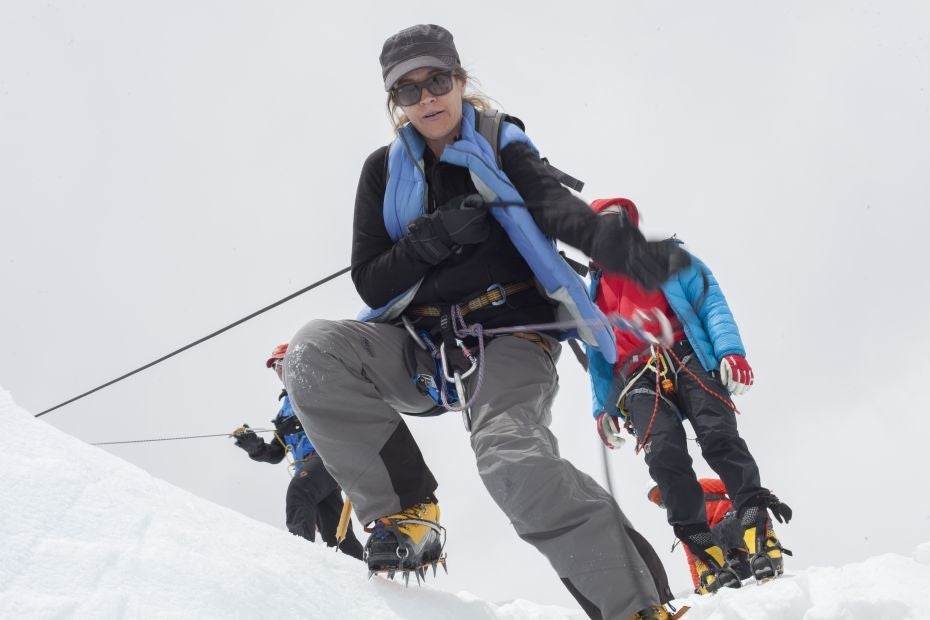Sherpa, film review: stunning imagery of the Himalayan peaks but a depressing story
Jennifer Peedom shows the reality of the raught relationship between Sherpas and the western climbers who employ them

Your support helps us to tell the story
From reproductive rights to climate change to Big Tech, The Independent is on the ground when the story is developing. Whether it's investigating the financials of Elon Musk's pro-Trump PAC or producing our latest documentary, 'The A Word', which shines a light on the American women fighting for reproductive rights, we know how important it is to parse out the facts from the messaging.
At such a critical moment in US history, we need reporters on the ground. Your donation allows us to keep sending journalists to speak to both sides of the story.
The Independent is trusted by Americans across the entire political spectrum. And unlike many other quality news outlets, we choose not to lock Americans out of our reporting and analysis with paywalls. We believe quality journalism should be available to everyone, paid for by those who can afford it.
Your support makes all the difference.Jennifer Peedom’s impressive but downbeat documentary stands as a companion piece (and a corrective) to Baltasar Kormákur’s dramatic feature Everest. Peedom is exploring the fraught relationship between Sherpas and the western climbers who employ them. The Sherpas do the work and take the risks but are paid poorly and feel exploited.
By chance, Peedom was making her film during and in the wake of “the darkest day in the history of Mount Everest,” 18 April 2014, when 16 Sherpas were killed in the ice. In the wake of the tragedy, younger Sherpas were reluctant to continue climbing, at least for the season. “We can’t risk our lives just because foreigners have paid,” one says, expressing their feelings.
Sherpa is full of awesomely beautiful imagery of the Himalayan peaks but the story it tells is rancorous and depressing. There is archive footage of Tenzing Norgay, who climbed Everest with Edmund Hillary in 1953, and with Norgay’s descendants. Peedom manages to win the trust of all the involved parties: of the Sherpas themselves, the climbers and the tour operators. One of her subjects, Phurba Tashi Sherpa, has climbed Everest more than 20 times in the line of his work. The veteran tour leader Russell Brice is a self-evidently decent and conscientious man, but he ends up caught in the middle between his clients, who’ve invested fortunes in coming to Everest, and the Sherpas, whose welfare he tries to look after. The Nepalese politicians do little to help.
Some of the language used by the Western climbers has a colonialist and even racist feel to it. Some of the behaviour of the younger Sherpas (for example, when a climber who has sworn at them is attacked) is boorish and bullying.
No one here emerges in an especially positive light. There is bad faith on all sides but, amid all the bickering about money and safety, Peedom always also pays attention to the courage and selflessness of her subjects.
Jennifer Peedom, 96 mins
Join our commenting forum
Join thought-provoking conversations, follow other Independent readers and see their replies
Comments